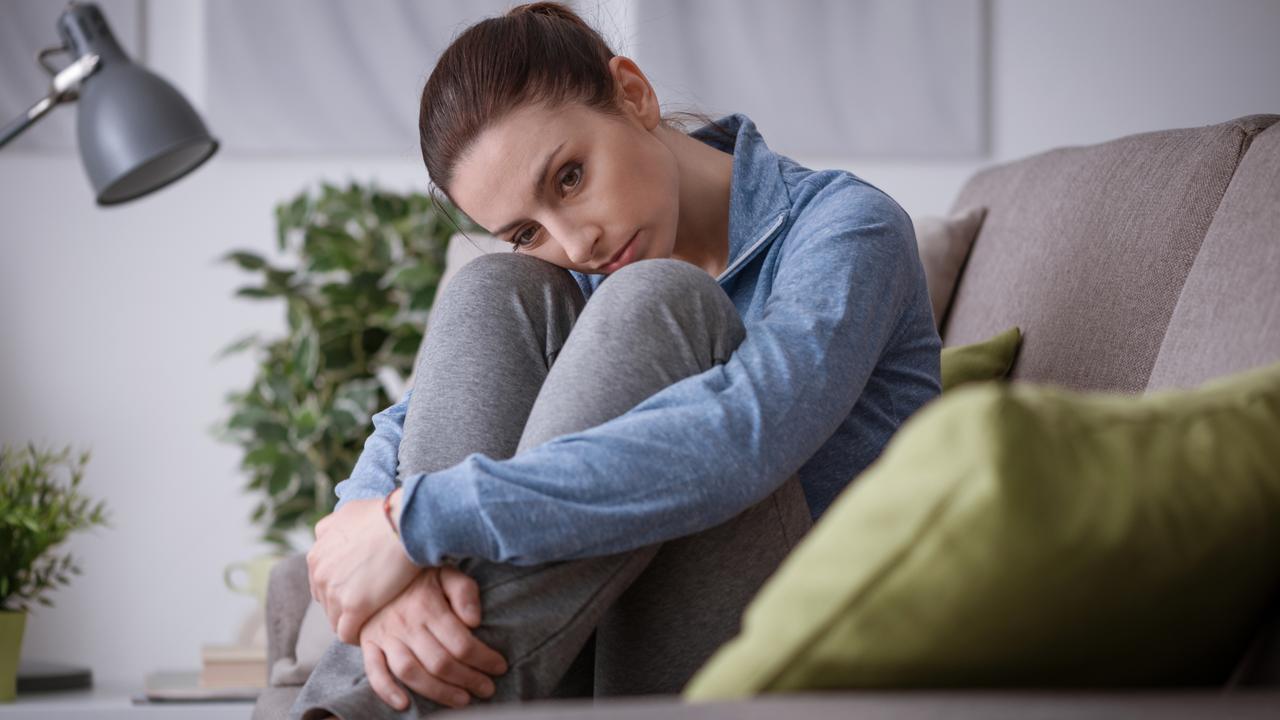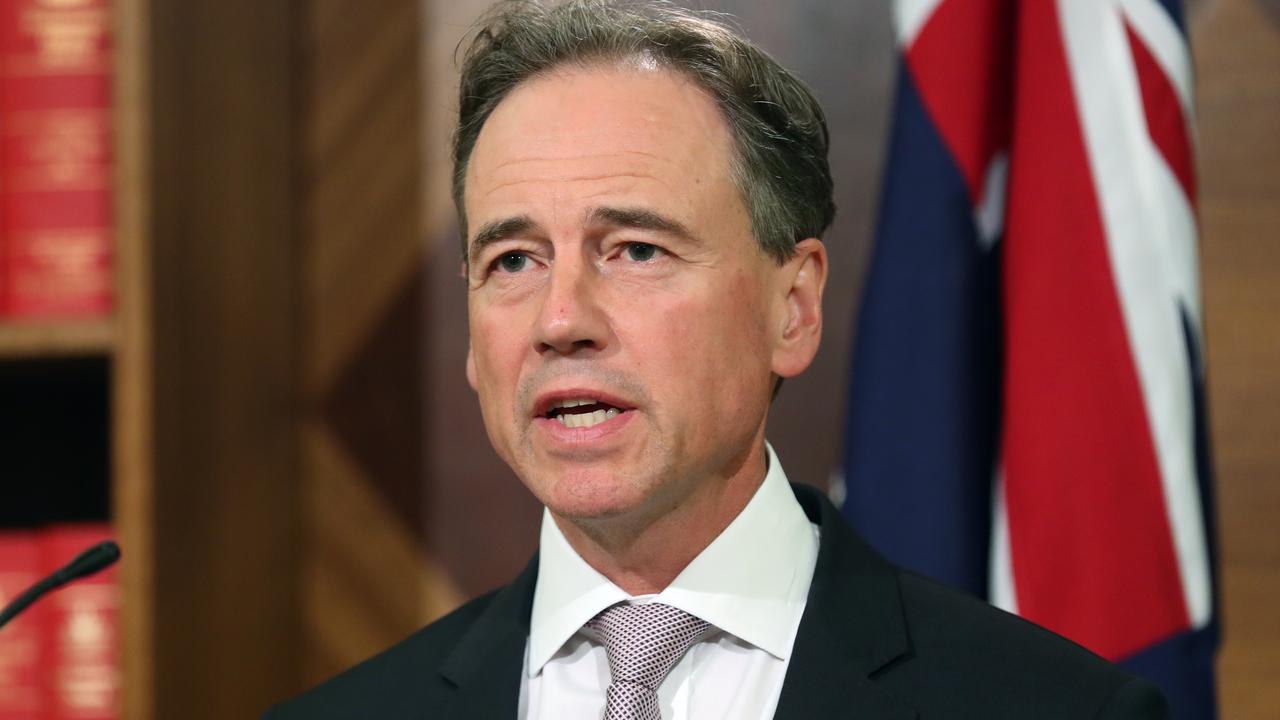PM’s advisor on suicide prevention warns: Aussies in quarantine, lockdown at risk of ‘long-lasting psychological effects’
The Prime Minister’s adviser on suicide prevention has warned quarantine and lockdowns could harm Aussies’ mental health.
National
Don't miss out on the headlines from National. Followed categories will be added to My News.
Bored and lonely Australians in hotel quarantine and pandemic lockdowns are at risk of “long-lasting psychological effects’’, the nation’s mental health adviser warned.
National Mental Health Commission chief executive Christine Morgan – the Prime Minister’s adviser on suicide prevention – called for more help for men, children and migrants to access mental health services.
Ms Morgan said 75 per cent of suicides were by men, who were the least likely to seek help for depression or anxiety.
“It is not something biological or psychological that drives that higher suicide rate,’’ she told a federal parliamentary inquiry into mental health on Thursday.
“It is very much about how men experience suicide stressors and get access to help.’’
Ms Morgan said men might be reluctant to seek help from women.
“Is it the fact it’s all women who are providing the service?’’ she said.
“We do have a workforce where often the front-facing person is female. Does that create a barrier for a guy?
“Do we need to look at some of those concepts about masculinity … that it is a weakness (to get help)?
“We really do need to look at some of our services and ask why aren’t they being accessed by men.’’

Ms Morgan also warned that quarantine could trigger mental illness, along with lockdowns during the COVID-19 pandemic.
“Being in quarantine is associated with isolation, loneliness, loss of control, stress, frustration, anger, boredom, and inadequate information,’’ she states in her written submission to the inquiry.
“(There is) some evidence suggesting there may be long-lasting psychological effects if these stressors are not minimised.
“Both the COVID-19 pandemic and the measures taking in response, including restrictions, have the potential for negative impacts on the mental health and wellbeing of Australians.’’
Ms Morgan has issued mental health advice for quarantine, warning it should not be treated as “custodial’’ and calling for mental health workers to be onsite in hotels during office hours.
“Every person in quarantine should ideally have access to fresh air through windows or a balcony, space to exercise, and healthy and culturally appropriate food options,’’ she states in the advice co-written by the Deputy Chief Medical Officer for Mental health, Dr Ruth Vine.
“Family groups which include dependent children should have separate but connected spaces.’’
Ms Morgan said the pandemic was causing financial pain, straining relationships and increasing domestic violence.
Eating orders were also being exacerbated during the pandemic, she said, with evidence of more binge eating and purging.
The parliamentary inquiry was also told of a need to double the number of counsellors in schools, to deal with traumatised teenagers.
The Australian Psychologists and Counsellors in Schools Association said schools need to directly employ more psychologists and counsellors.
“Adolescents are renowned for keeping things private and not seeking help,’’ the association states in a submission to the inquiry.
“Adding unknown professionals to the school site or requiring students to access an offsite intervention hub with people they have no relationship with, is fraught with danger.
“School psychologists and counsellors are in the sight of students all day … they have relationship and trust.’’
The association wants schools to hire one counsellor or psychologist for every 500 students.
The Morrison Government poured record funding into mental health in this week’s budget, with a “zero suicide’’ strategy to prevent 3000 deaths a year.
ZERO SUICIDE’ PLAN TO SAVE 3000 AUSSIES
A “zero suicide’’ plan to save 3000 lives each year will train hundreds of extra psychologists and psychiatric nurses and set up dozens of free mental health clinics to help struggling Australians.
The Morrison Government will pour a record $6.3 billion into new mental health services in 2021/22, with a focus on frontline help.
Treasurer Josh Frydenberg said helping people struggling with mental illness was a “clear national priority’’, with suicide ending the lives of 3000 Australians each year – the leading cause of death among adults aged 18 to 44.
“Tragically, over 65,000 of our fellow Australians attempt to take their own lives each year,’’ he said in his budget speech.
“These are not just statistics on a page but family, friends and colleagues’’.

For the first time, the Federal Government will pay the states and territories to guarantee free medical and psychiatric care in the “immediate months’’ after a patient is sent home from hospital following a suicide attempt.
And it will trial after-care services for anyone who has attempted suicide, or experienced suicidal distress, even if they do not go to hospital.
Forty community-based adult treatment centres, named Head to Health, have been funded in the Federal Budget.
They include eight new centres, 24 smaller satellite centres and ongoing funding for eight existing centres – as well as a phone helpline and online consultations.
For children up to 12 years old, 15 new Head to Health Kids mental health and wellbeing hubs will be set up, at a cost of $54 million.
New parents will be screened and treated for the “baby blues’’, with $7.8 million given to the Perinatal Anxiety and Depression Australia (PANDA) helpline.
Fly-in fly-out (FIFO) workers will benefit from $6.3 million in mental health support services, in response to a spate of suicides on mine sites.
A National Suicide Prevention Office will be established, at a cost of $12 million over the next four years.
Eating disorders will be targeted through a $13 million National Eating Disorder Research Centre, with day treatment centres to be discussed with the states and territories.
People suffering from severe mental illness, who do not qualify for funding under the National Disability Insurance Scheme (NDIS) will benefit from $173 million in funding for “psychosocial support’’ over the next two years.
Patients with major depressive disorder, who do not respond to medication, will be eligible for subsidised Repetitive Transcranial Magnetic Stimulation therapy, through $288 million in funding.
Up to 10 free trauma and distress counselling sessions will be offered to bushfire victims in 2021/22.
A Royal Commission will investigate the suicide of defence veterans, at a cost of $174 million over the next two years.

Around-the-clock suicide prevention services for Aboriginal and Torres Strait Islanders will be set up at a cost of $79 million.
Hundreds more psychologists and mental health nurses will be trained, through 280 scholarships and 350 clinical placements to train in hospitals and clinics. An extra 30 training posts for psychiatrists will be made available by 2023, at a cost of $11m.
Federal Health Minister Greg Hunt said natural disasters and COVID-19 had taken a toll on Australians’ mental health.
“We want a system that proactively reaches out to support people early in life and early in their experience of distress,’’ he said.
Mission Australia CEO, James Toomey called the investment “encouraging,” saying, “even before COVID-19, the prevalence of mental health concerns among young Australians was profoundly concerning.”
Mr Toomey said there are still “large gaps in the service system and that even greater investment is needed to match service provision to demand.”
Need help?
Lifeline 13 11 14
Originally published as PM’s advisor on suicide prevention warns: Aussies in quarantine, lockdown at risk of ‘long-lasting psychological effects’









